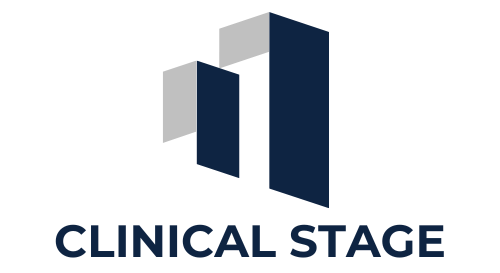Optimizing Clinical Trial Recruitment with Digital Tools
Recruiting participants for clinical trials is a critical yet challenging aspect of clinical research. The success of a clinical trial heavily depends on the timely and efficient recruitment of a sufficient number of participants who meet specific eligibility criteria. However, traditional recruitment methods often face several obstacles, including limited reach, slow processes, and challenges in targeting suitable candidates. As a result, many clinical trials struggle with delays, which can significantly impact the development of new treatments and therapies. In recent years, digital tools have emerged as powerful allies in overcoming these challenges. By leveraging technology, clinical trial recruitment can be optimized, reaching a broader audience and improving the efficiency and effectiveness of the recruitment process.
The purpose of this blog is to explore how digital tools are transforming clinical trial recruitment. We will delve into various digital recruitment tools, their benefits, and how they are reshaping the landscape of clinical trials. This blog aims to provide a comprehensive overview of the current state of digital recruitment in clinical trials, including practical examples and considerations for the future.
Understanding Digital Recruitment Tools
Digital recruitment tools encompass a wide range of technologies designed to enhance the recruitment process for clinical trials. These tools can include anything from social media platforms and online advertising to mobile health applications and wearable devices. The evolution of these tools has been driven by advancements in technology and the increasing ubiquity of the internet and mobile devices. Historically, clinical trial recruitment relied heavily on traditional methods such as physician referrals, community outreach, and printed advertisements. While these methods are still valuable, they are often limited in reach and can be inefficient.
One of the key advantages of digital recruitment tools is their ability to reach a global audience. Unlike traditional methods that may be confined to specific geographic locations, digital platforms can connect researchers with potential participants from around the world. This global reach is particularly valuable for trials targeting rare diseases or specific subpopulations that may be dispersed across different regions. Additionally, digital tools can facilitate the recruitment of diverse participant groups, ensuring that clinical trials reflect a broad spectrum of demographics, which is crucial for the generalizability of trial results.
The adoption of digital tools in recruitment offers several key benefits. Firstly, they enable a broader reach, allowing recruiters to connect with potential participants across different demographics and geographic locations. This is especially important for ensuring diversity in clinical trials, which can lead to more comprehensive and applicable findings. Secondly, digital tools can streamline the recruitment process by automating tasks, such as screening and communication, which saves time and resources. Automation can reduce the administrative burden on research staff, allowing them to focus on more complex aspects of the recruitment process. Thirdly, digital platforms provide access to a wealth of data that can be used to optimize recruitment strategies, ensuring that the right participants are targeted effectively. This data-driven approach can lead to more informed decision-making and better outcomes for clinical trials. These benefits make digital tools an invaluable component of modern clinical trial recruitment strategies.
Social Media and Online Advertising
Social media platforms have become a significant channel for clinical trial recruitment. Platforms such as Facebook, Twitter, LinkedIn, and Instagram provide access to large and diverse audiences, making them ideal for reaching potential trial participants. Researchers can use these platforms to post information about clinical trials, share educational content, and engage with the public. Social media also allows for targeted advertising, where ads can be shown to specific demographics based on age, location, interests, and health conditions. This targeted approach increases the likelihood of reaching individuals who may be eligible and interested in participating in a trial.
The use of social media in clinical trial recruitment is not just limited to posting advertisements. It also involves creating engaging content that educates and informs potential participants about the trial, its purpose, and the potential benefits of participation. For example, videos, infographics, and testimonials from previous participants can be powerful tools to attract and inform potential recruits. Moreover, social media platforms offer interactive features such as polls, Q&A sessions, and live broadcasts, which can be used to engage directly with the audience and answer their questions in real-time.
Online advertising extends beyond social media to include search engine ads and banner ads on relevant websites. These ads can be tailored to specific keywords and user behaviors, ensuring that they reach individuals actively searching for information related to clinical trials or specific medical conditions. For instance, a person searching for information about diabetes management may see ads for a clinical trial studying a new diabetes treatment. The effectiveness of digital ads can be measured through various metrics such as click-through rates, conversion rates, and engagement levels. These metrics provide valuable insights into the performance of recruitment campaigns and help in refining strategies to improve outcomes.
A significant advantage of digital advertising is the ability to perform A/B testing, where different versions of ads are shown to different segments of the audience to determine which performs better. This iterative approach allows researchers to optimize their messaging and visual elements, ensuring that the most effective ads are used to attract participants. Furthermore, digital advertising platforms often provide analytics and reporting tools that allow researchers to track the success of their campaigns in real-time, making it easier to adjust strategies as needed.
Mobile Health Applications
Mobile health applications, or mHealth apps, are another powerful tool for clinical trial recruitment. These apps can engage patients directly on their smartphones, providing a convenient platform for disseminating information about clinical trials and managing recruitment processes. With the widespread use of smartphones, mHealth apps offer a unique opportunity to reach potential participants wherever they are, making it easier to connect with a broad audience.
Successful recruitment apps often feature user-friendly interfaces, easy navigation, and clear information about trial eligibility and procedures. They may also include features like notifications for new trials, reminders for appointments, and direct communication channels with researchers. These features help keep participants informed and engaged throughout the recruitment process. For example, a recruitment app might include a personalized dashboard where users can view their progress, upcoming appointments, and any actions they need to take. This level of personalization and convenience can enhance the participant experience and increase the likelihood of successful recruitment.
Case studies have shown the effectiveness of mobile health apps in recruitment. For instance, an app designed to recruit participants for a diabetes trial successfully reached a large number of potential participants and streamlined the screening process. The app provided educational content about diabetes, detailed information about the trial, and an easy way for users to express interest and complete initial screening questionnaires. This approach not only increased the number of recruits but also improved the quality of candidates by ensuring they met the eligibility criteria before further engagement. Another example is the use of an app for a cardiovascular health study, which included features like a symptom tracker and medication reminders. This app not only facilitated recruitment but also helped in monitoring participants' adherence to the study protocol.
The integration of mobile health apps with other digital tools, such as electronic health records (EHRs) and wearable devices, can further enhance recruitment efforts. For example, an app could automatically pull relevant health data from a participant's EHR, reducing the need for manual data entry and ensuring accurate and up-to-date information. Similarly, data from wearable devices can be integrated into the app, providing real-time insights into participants' health and behavior. This integration can help researchers identify potential issues early and make adjustments to the study protocol if necessary.
Wearable Devices and Remote Monitoring
Wearable devices, such as fitness trackers and smartwatches, offer unique opportunities for clinical trial recruitment and data collection. These devices can monitor a range of health metrics, including heart rate, activity levels, and sleep patterns. The data collected from wearables can be used to identify potential participants who meet specific health criteria for a study. For instance, a study focused on sleep disorders could use data from wearables to identify individuals with irregular sleep patterns. This data-driven approach allows researchers to target individuals who are most likely to benefit from the study, increasing the relevance and potential impact of the research.
The continuous health monitoring provided by wearables also offers benefits beyond recruitment. It allows for more comprehensive data collection during the trial, providing real-time insights into participants' health and adherence to the study protocol. This data can enhance the quality of the trial's findings and provide a more detailed understanding of the treatment's effects. For example, wearable devices can track a participant's physical activity levels, sleep quality, and physiological responses, offering a holistic view of their health. This continuous data collection is particularly valuable in studies that require close monitoring of participants' health, such as those involving chronic conditions or lifestyle interventions.
Integrating wearable data into recruitment strategies can streamline the recruitment process and improve the accuracy of participant selection. For example, a study on cardiovascular health might use data from wearables to identify individuals with high blood pressure or irregular heart rhythms. By targeting these individuals, researchers can ensure that the study includes participants who are most likely to experience the condition being studied, enhancing the study's relevance and potential impact.
Moreover, wearables can be used to monitor participants' adherence to the study protocol, such as medication adherence or physical activity levels. This data can be used to identify participants who may be at risk of non-compliance and provide targeted interventions to improve adherence. For example, a study might send reminders or motivational messages to participants who are not meeting their activity goals. This proactive approach can help ensure that the study data is accurate and reliable.
Artificial Intelligence and Big Data
Artificial intelligence (AI) and big data analytics are transforming clinical trial recruitment by enabling more precise and efficient identification of potential participants. AI-driven algorithms can analyze large datasets to identify individuals who meet the specific criteria for a trial. These algorithms can consider a wide range of factors, including medical history, genetic information, and lifestyle data, to identify the most suitable candidates. For example, an AI algorithm might analyze electronic health records to identify patients with a specific genetic mutation or those who have experienced a particular side effect from a medication.
Big data analytics can also help researchers target specific populations more effectively. For example, by analyzing data from electronic health records, researchers can identify regions or communities with a high prevalence of a particular condition, enabling targeted recruitment efforts. Predictive analytics, another application of AI, can forecast recruitment outcomes based on historical data, helping researchers anticipate challenges and adjust their strategies accordingly. For instance, predictive models can identify factors that may lead to recruitment delays, such as seasonal variations or competing studies, allowing researchers to proactively address these issues.
AI and big data analytics can also improve the efficiency of the recruitment process by automating repetitive tasks, such as data entry and participant screening. For example, an AI-powered chatbot can handle initial participant inquiries, answer frequently asked questions, and collect preliminary screening information. This automation frees up research staff to focus on more complex tasks and reduces the risk of human error.
Additionally, AI and big data can be used to personalize recruitment efforts. For example, personalized marketing campaigns can be designed based on participants' health data and preferences. This targeted approach can increase the likelihood of recruitment success by ensuring that potential participants receive relevant and personalized information. Moreover, AI can analyze participants' responses to recruitment materials and adjust the messaging and content to better engage the target audience.
Enhancing Participant Experience with Digital Tools
The participant experience is a crucial aspect of clinical trial recruitment. Digital tools can enhance this experience by providing personalized communication and support. For instance, automated messaging systems can send personalized reminders and updates to participants, keeping them informed and engaged throughout the trial. These systems can also provide tailored information based on participants' specific needs and preferences. For example, a participant with a busy schedule might receive reminders about upcoming appointments at convenient times, while a participant with limited digital literacy might receive additional support and instructions.
Gamification and incentive-based engagement are other strategies that can enhance the participant experience. By incorporating elements of games, such as points, rewards, and challenges, researchers can make participation in trials more engaging and enjoyable. This approach can increase motivation and improve retention rates. For example, a study might offer participants points for completing certain tasks, such as logging their symptoms or attending study visits, which can be redeemed for rewards. This gamified approach can make the study experience more interactive and enjoyable, encouraging participants to stay engaged and compliant.
Ensuring a seamless and user-friendly experience with digital tools is essential, as a positive experience can lead to higher levels of participation and compliance, ultimately contributing to the success of the trial. This includes providing clear and accessible information about the study, ensuring that digital tools are easy to use, and offering support for any technical issues that participants may encounter. For example, a study might offer a helpline or online chat support to assist participants with any questions or concerns they may have.
Another important aspect of enhancing the participant experience is building trust and transparency. Participants are more likely to engage with a study if they feel confident that their data will be handled securely and that they will be treated with respect. Researchers can build trust by being transparent about the study's purpose, procedures, and potential risks and benefits. This transparency should extend to the use of digital tools, including clear explanations of how participants' data will be collected, stored, and used.
Regulatory and Ethical Considerations
The use of digital tools in clinical trial recruitment comes with regulatory and ethical considerations. It is essential to ensure compliance with regulations governing digital recruitment and patient data protection. This includes adhering to guidelines set by regulatory bodies such as the FDA and EMA, as well as data protection laws like GDPR. Researchers must obtain informed consent from participants and ensure that all communications are transparent and accurate. This includes providing clear information about the study's purpose, procedures, and potential risks and benefits.
Ethical issues also arise in digital patient engagement. For example, there is a need to ensure that digital recruitment methods do not exclude certain populations, such as those without internet access or those with limited digital literacy. Researchers must also protect patient data and privacy, implementing robust security measures to safeguard sensitive information. This includes using encryption and secure data storage solutions and ensuring that only authorized personnel have access to participant data.
Additionally, researchers must consider the potential for digital tools to introduce biases into the recruitment process. For example, targeting ads based on specific demographic data may inadvertently exclude certain groups. To address these concerns, researchers should use inclusive recruitment strategies that ensure diverse representation in clinical trials. This includes considering factors such as age, gender, race, ethnicity, and socioeconomic status when designing recruitment campaigns.
The ethical use of AI and big data in recruitment also requires careful consideration. For example, the use of predictive analytics to identify potential participants must be done in a way that respects individuals' privacy and autonomy. Researchers must ensure that participants are fully informed about how their data will be used and obtain their consent before using their data for recruitment purposes.
Optimizing Clinical Trial Recruitment with Digital Tools: A Notable Labs Perspective
Recruiting participants for clinical trials is a critical yet challenging aspect of clinical research. The success of a clinical trial heavily depends on the timely and efficient recruitment of a sufficient number of participants who meet specific eligibility criteria. However, traditional recruitment methods often face several obstacles, including limited reach, slow processes, and challenges in targeting suitable candidates. As a result, many clinical trials struggle with delays, significantly impacting the development of new treatments and therapies.
In recent years, digital tools have emerged as powerful allies in overcoming these challenges. By leveraging technology, clinical trial recruitment can be optimized, reaching a broader audience and improving the efficiency and effectiveness of the recruitment process. This is where Notable Labs stands out, offering innovative digital solutions that transform the recruitment landscape.
Notable Labs utilizes a range of digital recruitment tools, from social media platforms and online advertising to mobile health applications and wearable devices. These tools not only broaden the reach to potential participants across different demographics and geographic locations but also streamline the recruitment process by automating tasks like screening and communication. This automation reduces the administrative burden on research staff, allowing them to focus on more complex recruitment aspects.
One of the key advantages of digital recruitment tools is their ability to reach a global audience. Unlike traditional methods that may be confined to specific geographic locations, digital platforms can connect researchers with potential participants worldwide. This global reach is particularly valuable for trials targeting rare diseases or specific subpopulations that may be dispersed across different regions. Additionally, digital tools can facilitate the recruitment of diverse participant groups, ensuring that clinical trials reflect a broad spectrum of demographics, which is crucial for the generalizability of trial results.
Notable Labs leverages the power of social media and online advertising to access large and diverse audiences. By creating engaging content that educates and informs potential participants about the trial, its purpose, and the potential benefits of participation, Notable Labs enhances the effectiveness of their recruitment campaigns. Moreover, their use of advanced analytics and A/B testing ensures that the most effective messaging and visual elements are used to attract participants.
The use of mobile health applications (mHealth apps) further exemplifies Notable Labs' innovative approach. These apps engage patients directly on their smartphones, providing a convenient platform for disseminating information about clinical trials and managing recruitment processes. Successful recruitment apps feature user-friendly interfaces, clear information about trial eligibility and procedures, and direct communication channels with researchers, enhancing the participant experience and increasing the likelihood of successful recruitment.
Wearable devices and remote monitoring also play a crucial role in Notable Labs' strategy. By using wearables to monitor a range of health metrics, Notable Labs can identify potential participants who meet specific health criteria for a study, ensuring that the study includes participants who are most likely to benefit from the research. The continuous health monitoring provided by wearables offers benefits beyond recruitment, allowing for comprehensive data collection during the trial and enhancing the quality of the trial's findings.
Notable Labs also harnesses the power of artificial intelligence (AI) and big data analytics to transform clinical trial recruitment. AI-driven algorithms can analyze large datasets to identify individuals who meet specific criteria for a trial, considering a wide range of factors, including medical history, genetic information, and lifestyle data. Big data analytics helps researchers target specific populations more effectively, enabling targeted recruitment efforts and optimizing recruitment strategies.
Enhancing the participant experience is a crucial aspect of Notable Labs' approach. Digital tools provide personalized communication and support, including automated messaging systems that send personalized reminders and updates to participants. Additionally, gamification and incentive-based engagement strategies make participation in trials more engaging and enjoyable, increasing motivation and retention rates.
Notable Labs is committed to ensuring compliance with regulations governing digital recruitment and patient data protection. By adhering to guidelines set by regulatory bodies such as the FDA and EMA, and ensuring the ethical use of digital tools, Notable Labs protects patient data and privacy while fostering trust and transparency with participants.
In conclusion, Notable Labs is at the forefront of transforming clinical trial recruitment through the use of digital tools. Their innovative approach not only improves efficiency but also creates a more patient-centered approach to research. By leveraging technology to connect with patients in new and meaningful ways, Notable Labs fosters a more engaged and informed participant population, leading to better trial outcomes and ultimately better healthcare solutions for all.
Conclusion
In conclusion, digital tools are revolutionizing clinical trial recruitment, offering numerous benefits over traditional methods. From social media and online advertising to mobile health applications, wearable devices, and AI-driven analytics, these tools provide innovative solutions for reaching and engaging potential participants. They enable a broader reach, streamline recruitment processes, and offer valuable data insights. Moreover, they enhance the participant experience, which is crucial for the success of clinical trials.
As technology continues to advance, the role of digital tools in clinical trial recruitment is likely to grow even more significant. Future trends may include the increased use of AI and machine learning for personalized recruitment strategies, the integration of more sophisticated wearable devices, and the expansion of digital platforms for patient engagement. By embracing these technologies, researchers can optimize recruitment efforts, reduce trial delays, and ultimately accelerate the development of new treatments and therapies.
In this evolving landscape, it is essential for researchers, clinicians, and regulatory bodies to collaborate and establish best practices for the ethical and effective use of digital tools in clinical trial recruitment. This includes developing guidelines for data privacy and security, ensuring inclusive recruitment practices, and fostering transparency and trust with participants. By doing so, the clinical research community can harness the full potential of digital tools to enhance recruitment efforts and improve the quality and impact of clinical trials.
Ultimately, the integration of digital tools in clinical trial recruitment is not just about improving efficiency; it is about creating a more patient-centered approach to research. By leveraging technology to connect with patients in new and meaningful ways, researchers can foster a more engaged and informed participant population, leading to better trial outcomes and, ultimately, better healthcare solutions for all.










